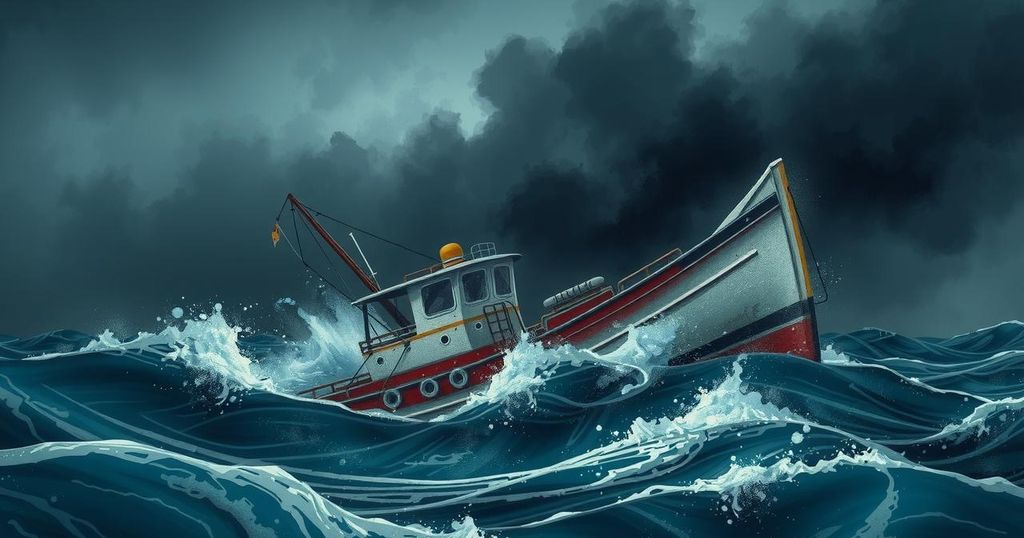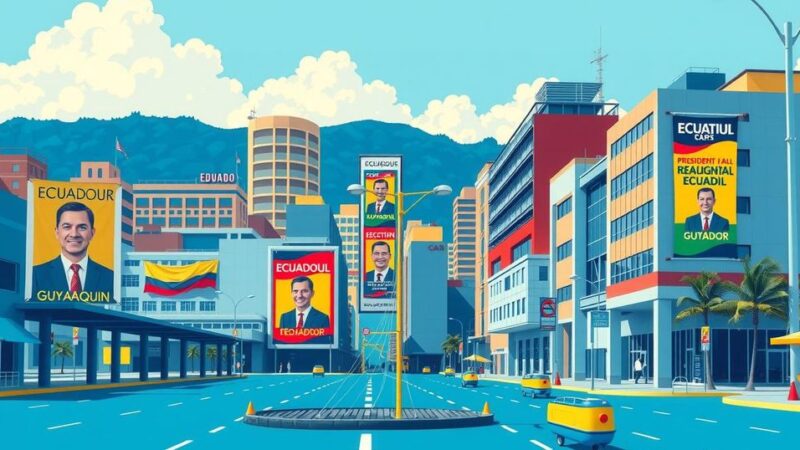Chile experienced violent clashes between police and fishermen over fishing quotas, with protests concentrated in Valparaíso, Coquimbo, and Maule. Police utilized tear gas to disperse protesters’ violent actions, which included burning tires and damaging property. The unrest is rooted in demands for legislative changes to improve artisanal fishing rights, particularly regarding hake quotas.
On Wednesday, Chile experienced significant unrest as police and fishermen clashed over fishing quotas. Law enforcement in Valparaíso utilized tear gas and water cannons to confront numerous demonstrators who resorted to throwing stones and igniting tires. The confrontations resulted in injuries to at least 15 officers and one protester, with seven officers sustaining injuries, one of whom was hospitalized with serious head wounds.
The protests occurred not only in Valparaíso but also expanded to the regions of Coquimbo and Maule. In Maule, eight police officers were injured amidst further skirmishes, and five protesters were arrested. Demonstrators caused major disruptions, including the burning of a police vehicle, as they expressed their frustrations about fishing rights. In Coquimbo, fishermen echoed similar demands, blocking the Pan-American Highway with flaming tires.
The demonstrators seek the prompt adoption of a bill that would bolster artisanal fishing rights, specifically concerning the hake catch quota. Although the House of Representatives has passed the bill, it is currently stalled in the Senate Finance Committee, leading to increased unrest among the fishermen. Miguel Angel Hernandez, president of the Federation of Artisanal Fishermen of Valparaíso, voiced concerns that the Senate is attempting to diminish their fishing allowances, emphasizing the urgent need for the bill’s immediate passage.
The escalating protests in Chile reflect deep-seated tensions regarding fishing quotas among artisanal fishermen. The violent clashes between police and demonstrators underscore the urgent demand for legislative action to support fishing rights. As fishermen continue to advocate for an improved share of the catch quota, the situation remains dynamic, highlighting the significance of this issue in the region.
Original Source: www.france24.com






